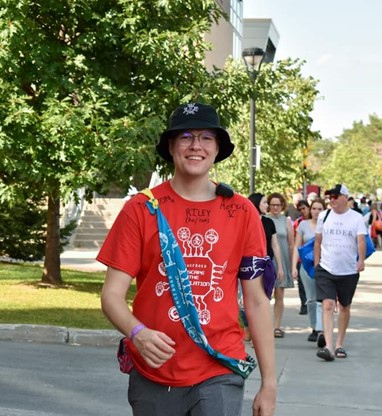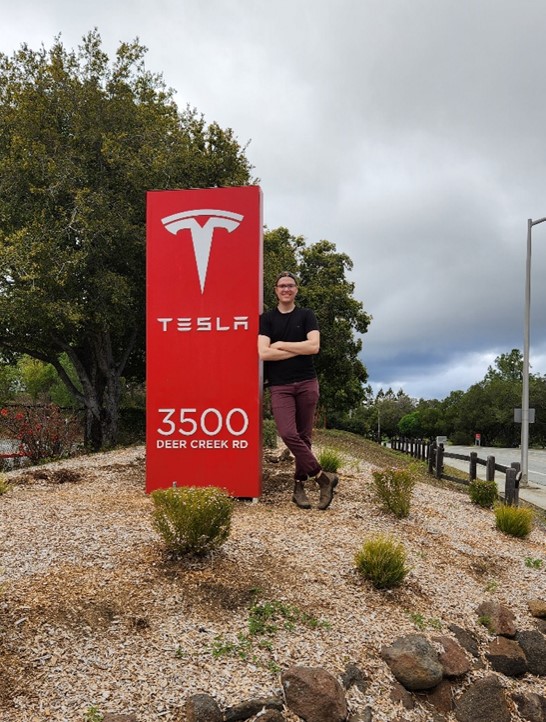Garage Greatness: Riley’s Journey Through Engineering and Innovation
By Blythe Armstrong

Riley, a passionate engineering student and leader of the Planetary Robotics Club, has transformed a small garage team into the largest robotics club at Carleton University, boasting over 200 members. This remarkable growth is a testament to Riley’s dedication and vision, especially in the face of challenges posed by the COVID-19 pandemic.
Riley first joined the Planetary Robotics Club in 2020, but like many organizations, it shut down due to the pandemic. Undeterred, he took the reins in 2021, starting with just one member—himself. With the addition of enthusiastic first-year engineering students, the team began to flourish, eventually reaching its current impressive size.
This past summer, the club made its competition debut at a robotics event in Drumheller, Alberta, where they achieved an astounding second place in Canada and seventh overall. Notably, they became the highest-placing first-year team to ever compete, a milestone that reflects both their talent and hard work. With an eye on the future, Riley’s goal for this year is to participate in the prestigious University Rover Challenge, an international competition that tests student-built rovers.
Riley has also observed a growing interest in mechatronics among students, noting that many are eager to engage with both the coding and hands-on aspects of engineering. This trend is fostering more employability opportunities, helping students to bridge theory with practical skills.
In addition to his leadership role at the Planetary Robotics Club, Riley is actively participating in the co-op program at Carleton University, gaining invaluable real-world experience in his field. This program has allowed him to work at leading companies, including Mission Control, a company focused on developing software and AI for lunar exploration. Riley initially sought a testing space for the robotics team and ended up securing a position at Mission Control.
“Rovers on the moon combine all the engineering disciplines that initially intrigued me,” he explains.
Reflecting on his work at Tesla, where he was involved with the Cybertruck as a power electronics engineer, Riley emphasizes the rigorous demands of engineering for space.
“It’s infinitely harder to work on robots that go into space,” he notes highlighting the unique challenges and innovative solutions required in this field.

Riley’s journey has also led him to make significant contributions to improving Carleton’s Maker Space, collaborating with Professor Michael Feuerherm to enhance the resources available for students.
For those aspiring to follow a similar path, Riley offers valuable advice:
“Be a nice person. It can’t be overstated how beneficial it is to be kind. People like to work with you.” He encourages students not to be discouraged by grades, sharing that he was a B student who persevered. “Keep trying, believe in yourself, and never be afraid to ask questions,” he advises, reflecting on his own journey of seizing opportunities and making the most of them.
Riley’s internship and co-op experience have profoundly influenced his academic interests, pivoting his focus from ground robotics to space robotics. “I went from building fake Mars rovers for free to getting paid to work with rovers that will actually go into space,” he shares with excitement.
Looking back, Riley feels he is living his wildest dreams, a sentiment that resonates deeply with his childhood aspirations of becoming a professional hockey player or doing “cool rocket stuff.” While one dream remains unfulfilled, his passion for engineering has not only persisted but grown, filling him with pride for where he is today.
“I know I’m meant to be exactly where I am, and that feels amazing,” he concludes.
As the Planetary Robotics Club continues to thrive under his leadership, Riley’s journey serves as an inspiration to fellow students and aspiring engineers everywhere, proving that with determination, passion, and a little kindness, dreams can become reality.